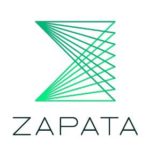Communications of the ACM

The blog archive provides access to past blog postings from Communications of the ACM and other sources by date.
March 2020
From insideHPC
Video: Ampere Altra is Industry’s First 80-Core Server Processor

 Today Ampere announced that it has begun shipping the Ampere Altra processor, the industry’s first 80-core server CPU and the first cloud native CPU for modern cloud and edge computing data centers. Ampere Altra is the company…
Today Ampere announced that it has begun shipping the Ampere Altra processor, the industry’s first 80-core server CPU and the first cloud native CPU for modern cloud and edge computing data centers. Ampere Altra is the company…
From Schneier on Security
Let's Encrypt Vulnerability

The BBC is reporting a vulnerability in the Let's Encrypt certificate service: In a notification email to its clients, the organisation said: "We recently discovered a bug in the Let's Encrypt certificate authority code. "Unfortunately…
From insideHPC
Shedding New Light on Intelligent Investment Strategies for HPC

 When it comes to successfully identifying the likely success of companies, and steering an effective investment strategy, there is one organization that appears to be well ahead of the pack. "The company is WR Hambrecht and the…
When it comes to successfully identifying the likely success of companies, and steering an effective investment strategy, there is one organization that appears to be well ahead of the pack. "The company is WR Hambrecht and the…
From The Eponymous Pickle
Autonomous Vehicles Should Start Small, Go Slow

Somewhat obvious, but well examined suggestions here
Autonomous Vehicles Should Start Small, Go Slow
Self-driving vehicles can already work well on campuses where traffic moves slowly By Shaoshan Liu and Jean-Luc Gaudiot in…
From Daniel Lemire's Blog
Will calling “free” or “delete” in C/C++ release the memory to the system?

In the C programming language, we typically manage memory manually. A typical heap allocation is a call to malloc followed by a call to free. In C++, you have more options, but it is the same routines under the hood. // allocate…
From Gödel's Lost Letter and P=NP
Dyson as a Mathematician
With a lemma from 1947 that might be useful today? Cropped from article on his letters Freeman Dyson passed away last February 28th, one day short of the leap day, February 29th. He was one of the great physicists, one of the…
From The Eponymous Pickle
Designing Services for Utility Ecosystems

Upcoming Talk:
ISSIP Service Design Speaker Series: Designing Services for the Future of Utility Service Ecosystem on Wednesday, March 4th 2020, 11:00 AM - 11.45 AM US Eastern Standard Time
The utility service ecosystem dynamic…
From insideHPC
Mellanox to Acquire Titan IC for Security and Data Analytics

 Today Mellanox announced that it has reached a definitive agreement to acquire privately held Titan IC, the leading developer of network intelligence (NI) and security technology to accelerate search and big data analytics across…
Today Mellanox announced that it has reached a definitive agreement to acquire privately held Titan IC, the leading developer of network intelligence (NI) and security technology to accelerate search and big data analytics across…
From insideHPC
Honeywell Ventures paves way for Quantum System from Zapata Computing

 Today quantum startup Zapata Computing announced a strategic investment from Honeywell Ventures, the venture capital arm of Honeywell. The investment will fuel continued enhancements to Zapata Computing’s platform and increase…
Today quantum startup Zapata Computing announced a strategic investment from Honeywell Ventures, the venture capital arm of Honeywell. The investment will fuel continued enhancements to Zapata Computing’s platform and increase…
From The Eponymous Pickle
Google Fairness Gym

A considerable effort reported on here to experiment with the broad idea of fairness in machine learning, via the notion of a 'gym' to exercise choices and results with varying data. Article below has quite a bit of detail…
From insideHPC
Intel Powers Fujitsu Supercomputer at Japan’s Meteorological Research Institute

 Today Fujitsu announced the deployment of a new supercomputer system for the Meteorological Research Institute of the Japan Meteorological Agency. The new system consists of approximately 900 nodes including the latest x86 servers…
Today Fujitsu announced the deployment of a new supercomputer system for the Meteorological Research Institute of the Japan Meteorological Agency. The new system consists of approximately 900 nodes including the latest x86 servers…
From insideHPC
Lockheed Martin makes Strategic Investment in Ayar Labs

 Optical interconnect startup Ayar Labs has received a strategic investment from Lockheed Martin Ventures. The funds will be used to accelerate the commercialization of Ayar Labs’ patented monolithic in-package optical I/O (MIPO)…
Optical interconnect startup Ayar Labs has received a strategic investment from Lockheed Martin Ventures. The funds will be used to accelerate the commercialization of Ayar Labs’ patented monolithic in-package optical I/O (MIPO)…
From ACM-W supporting, celebrating and advocating for Women in Computing
Join ACM-W on Twitter!

ACM-W is proud to announce that you can now @us! That’s right, our official Twitter account is now live, @OfficialACMW. Now, through Twitter (and still Facebook) you’ll be able get notified about regular ACM-W announcements,…
From Putting People First
Five short papers on online privacy by Carissa Véliz

Carissa Véliz is a philosopher and ethicist who works on digital ethics, practical ethics more generally, political philosophy, and public policy
From insideHPC
Stepping up Efficiency for Exascale with FPGAs at the LEGaTO Project

 In this special guest feature from Scientific Computing World, Robert Roe writes that European researchers have developed a framework to boost the energy efficiency of CPU, GPU and FPGA resources. "The drive for exascale and
…
In this special guest feature from Scientific Computing World, Robert Roe writes that European researchers have developed a framework to boost the energy efficiency of CPU, GPU and FPGA resources. "The drive for exascale and
…
From The Eponymous Pickle
Alexa Answers Healthcare and Pharma Questions

Good aim at typical questions from the home. Maintenance, regulation and liability may prove a prove an issue.
Amazon’s Alexa can now answer more questions about prescription drugs
By Kyle Wiggers in Venturebeat
Alexa can now answer…
From The Eponymous Pickle
Trick forTeaching AI the Meaning of Language

More advances in machine language learning and understanding.
Baidu Has Trick for Teaching AI the Meaning of Language
By MIT Technology Review
Baidu, Chinas closest equivalent to Google, recently outperformed Google and Microsoft…
From Schneier on Security
Wi-Fi Chip Vulnerability

There's a vulnerability in Wi-Fi hardware that breaks the encryption: The vulnerability exists in Wi-Fi chips made by Cypress Semiconductor and Broadcom, the latter a chipmaker Cypress acquired in 2016. The affected devices include…
From Putting People First
The ethics of nudging

No “knockdown” objection has appeared to date that should make us reject the nudge approach overall. At the same time, serious ethical concerns have emerged that should guide and inform discussions around whether and which particular…
From The Eponymous Pickle
Fixing 3D Print

Instructive example, other applications?
3D Print Jobs Are More Accurate With Machine Learning
USC engineers have developed AI that can make any 3D printer more precise
3D printing is already being used to produce electric bikes…
From Apophenia
Joyfully Geeking Out

In 2015, I was invited to join the Commerce Department’s Data Advisory Council. Truth be told, I was kinda oblivious to what this was all about. I didn’t know much about how the government functioned. I didn’t know what a “FACA…
From insideHPC
NVIDIA Cancels GTC 2020 Live Event due to Coronavirus

 Due to the coronavirus, today NVIDIA announced that GTC 2020 is turning into a digital conference rather than a live event. "As the coronavirus situation is not improving, we’re turning GTC San Jose into a digital conference
…
Due to the coronavirus, today NVIDIA announced that GTC 2020 is turning into a digital conference rather than a live event. "As the coronavirus situation is not improving, we’re turning GTC San Jose into a digital conference
…
From BLOG@CACM
Getting a Program Right (3)

Attempt #3 to write a binary search program.
From The Eponymous Pickle
China Gives Citizens a Danger Code

Via ACM. Is this a 'troubling precedent', or a reasonable approach for imminent danger?
In Coronavirus Fight, China Gives Citizens a Color Code, with Red Flags
The New York Times
Paul Mozur; Raymond Zhong; Aaron Krolik
March 1,…
From The Eponymous Pickle
Wal-Mart Fights Amazon Prime with Walmart+

Not so quiet really, have seen several notes on this in the past week. Details will be interesting. Amazon has the really broad reach here with embedded channels. And brand recognition too. Wal-Mart needs to make a big
Walmart…
From insideHPC
Video: How oneAPI Is Revolutionizing Programming

 In this video, academics and industry experts weigh in on the potential of oneAPI, the new, unified software programming model for CPU, GPU, AI, and FPGA accelerators that delivers high compute performance for emerging specialized…
In this video, academics and industry experts weigh in on the potential of oneAPI, the new, unified software programming model for CPU, GPU, AI, and FPGA accelerators that delivers high compute performance for emerging specialized…
From insideHPC
SLIDE algorithm for training deep neural nets faster on CPUs than GPUs

 Rice researchers created a cost-saving alternative to GPU, an algorithm called "sub-linear deep learning engine" (SLIDE) that uses general purpose central processing units (CPUs) without specialized acceleration hardware. "Our…
Rice researchers created a cost-saving alternative to GPU, an algorithm called "sub-linear deep learning engine" (SLIDE) that uses general purpose central processing units (CPUs) without specialized acceleration hardware. "Our…
From The Eponymous Pickle
Emphasis on Remote Work

In my own work, ver the last few weeks this has been mentioned several times. Obvious reaction. Seen also the effect on physically attending conferences.
As coronavirus worsens, companies renew focus on collaboration, remote
While…
From insideHPC
World’s Largest Spectra TFinity Tape Library installed at LLNL

 Lawrence Livermore National Laboratory (LLNL) is now home to the world’s largest Spectra TFinity system, following a complete replacement of the tape library hardware that supports Livermore’s data archives. Housed behind Sierra…
Lawrence Livermore National Laboratory (LLNL) is now home to the world’s largest Spectra TFinity system, following a complete replacement of the tape library hardware that supports Livermore’s data archives. Housed behind Sierra…
From The Computing Community Consortium Blog
Catalyzing Computing Podcast Episode 20 – The Ethics of Artificial Consciousness with Natesh Ganesh

A new episode of the Computing Community Consortium‘s (CCC) podcast, Catalyzing Computing, is now available. This is part two of Khari Douglas’ interview with Natesh Ganesh, a recent PhD graduate from the University of Massachussetts…
